廣東專版rx英語(yǔ)雙語(yǔ)報(bào)37期答案是小編專為各位準(zhǔn)備做這個(gè)報(bào)紙的同學(xué)準(zhǔn)備的,從專業(yè)渠道獲得全套的答案,絕對(duì)會(huì)讓你快速的把自己的任務(wù)完成,而且還能學(xué)到很多的東西,需要的下載吧。
廣東專版rx英語(yǔ)雙語(yǔ)報(bào)37期答案 預(yù)覽:
Part I Listening Comprehension (30 marks)
Section A
(5 marks)
In this section, you will hear five short conversations. Each conversations will be read only once.
At the end of each conversation, there will be a twenty-second pause, read the question and the
there choices marked A,B and C ,and decide which is the best answer.Then mark the
corresponding letter on the answer sheet with a single line through the centre.
1.
What does the man want to do?
A.
Get something to eat now.
B.
Find a quiet place that shows games.
C.
Watch the next game with the woman.
2.
Why does not the man have a MySpace account?
A.
He is not skilled at using computer.
B.
All of the instruction are in English
C.
The woman won not teach him.
3.
How long does the woman plan to try teleworking
A.
For a few days.
B.
For a few weeks.
C.
For a few months.
4.
What does the man hope will happen?
A.
The price of cell phone novels will go down.
B.
The novel’s author will writer longer stories.
C.
The woman will tell him ho the story ends.
5.
what is the woman going to do next?
A.
turn on her computer.
B.
Go for a walk with peter.
C.
Visit her new neighbors.
Part I Listening Comprehension (30 marks)
Section A
(5 marks)
In this section, you will hear five short conversations. Each conversations will be read only once.
At the end of each conversation, there will be a twenty-second pause, read the question and the
there choices marked A,B and C ,and decide which is the best answer.Then mark the
corresponding letter on the answer sheet with a single line through the centre.
1.
What does the man want to do?
A.
Get something to eat now.
B.
Find a quiet place that shows games.
C.
Watch the next game with the woman.
2.
Why does not the man have a MySpace account?
A.
He is not skilled at using computer.
B.
All of the instruction are in English
C.
The woman won not teach him.
3.
How long does the woman plan to try teleworking
A.
For a few days.
B.
For a few weeks.
C.
For a few months.
4.
What does the man hope will happen?
A.
The price of cell phone novels will go down.
B.
The novel’s author will writer longer stories.
C.
The woman will tell him ho the story ends.
5.
what is the woman going to do next?
A.
turn on her computer.
B.
Go for a walk with peter.
C.
Visit her new neighbors.
Part I Listening Comprehension (30 marks) Section A (5 marks)
In this section, you will hear five short conversations. Each conversations will be read only once. At the end of each conversation, there will be a twenty-second pause, read the question and the there choices marked A,B and C ,and decide which is the best answer.Then mark the corresponding letter on the answer sheet with a single line through the centre. 1. What does the man want to do? A. Get something to eat now.
B. Find a quiet place that shows games. C. Watch the next game with the woman.
2. Why does not the man have a MySpace account? A. He is not skilled at using computer. B. All of the instruction are in English C. The woman won not teach him.
3. How long does the woman plan to try teleworking A. For a few days. B. For a few weeks. C. For a few months.
4. What does the man hope will happen? A. The price of cell phone novels will go down. B. The novel’s author will writer longer stories. C. The woman will tell him ho the story ends. 5. what is the woman going to do next? A. turn on her computer. B. Go for a walk with peter. C. Visit her new neighbors.
高考英語(yǔ)改錯(cuò)技巧
短文改錯(cuò)解題思路和檢查原則
1. 句中各部分的結(jié)構(gòu)是否完整,特別是每個(gè)句子要有動(dòng)詞;
2. 謂語(yǔ)動(dòng)詞的時(shí)態(tài)、語(yǔ)態(tài);
3. 非謂語(yǔ)動(dòng)詞的用法;
4. 名詞的單、復(fù)數(shù),格的使用是否正確;
5. 定冠詞和不定冠詞是否正確;
6. 代詞的格和性的使用是否有誤;
7. 定語(yǔ)從句中關(guān)系代詞、關(guān)系副詞是否準(zhǔn)確無(wú)誤;
8. 并列句中的并列連詞、主從復(fù)合句中的從屬連詞用的是否得當(dāng)。
短文改錯(cuò)解題四原則
改動(dòng)以最少為原則;
虛詞以添加或刪除為原則;
實(shí)詞以改變?cè)~形為原則;
以保持句子原意為原則。
解題注意要點(diǎn)和能力培養(yǎng)
1. 核對(duì)錯(cuò)項(xiàng)時(shí),若的確有一時(shí)難以改出的地方,可以參考所改動(dòng)項(xiàng)是否基本符合“1:1:8”的比例。即多一詞1個(gè),缺詞1個(gè),錯(cuò)詞8個(gè)。
2. 核對(duì)改正的語(yǔ)法項(xiàng)目是否有重復(fù)。因?yàn)槎涛母腻e(cuò)往往覆蓋面廣,一般不會(huì)出現(xiàn)重復(fù)考查某個(gè)語(yǔ)法點(diǎn)的現(xiàn)象。
3. 核對(duì)答題符號(hào)是否規(guī)范,位置是否準(zhǔn)確,看看有無(wú)遺漏符號(hào)、忽略字母大小寫和拼寫等問(wèn)題。
解題思路(三步解題法)
第一步:快速瀏覽全文,把握文章的主要時(shí)態(tài)、人稱及文章的主旨大意,順便標(biāo)記自己一眼就能看出的錯(cuò)誤。
第二步:細(xì)讀文章,找出錯(cuò)誤并改正。一般要結(jié)合文章的上下文以及出題規(guī)律來(lái)做題。
第三步:代入正確答案通讀全文,看其是否通順。
出題規(guī)律及破解關(guān)鍵
高考短文改錯(cuò)一般會(huì)在以下八個(gè)方面進(jìn)行設(shè)題。
1. 動(dòng)詞:主要考查時(shí)態(tài)、主謂一致和固定搭配。例如:
①時(shí)態(tài)混用
Then the trouble started. We can’t open the door. So we asked the policeman for help.
(很顯然此段的主時(shí)態(tài)是一般過(guò)去式,因此應(yīng)把can’t改為couldn’t。)
②主謂不一致
There were a football game on TV last Saturday evening.
(a football game決定了謂語(yǔ)動(dòng)詞用單數(shù),故應(yīng)該把were改為was。)
③固定搭配
He had little money left, so he had to give up buy the computer.
(give up doing sth.是固定用法,故動(dòng)詞buy應(yīng)該改為buying。)
2. 名詞:主要考查單復(fù)數(shù)混用。例如:
Helen is seventeen year old. She is very busy.
(表示“年齡多大了”應(yīng)該為復(fù)數(shù)形式,故應(yīng)把year改為years。)
3. 形容詞/副詞:主要考查兩者之間是否混用。例如:
①副詞代替正確形容詞
During the football season, Helen is much busier than usually.
(很明顯是“與平時(shí)相比較更忙”,因此需要把usually改為usual。)
②形容詞代替正確副詞
As the time clock showed one minute and forty-two seconds left in the game, she began cheering excited, “Come on — get going!”
(顯然應(yīng)把excited改為excitedly,用來(lái)修飾動(dòng)詞cheer。)
4. 介詞:主要考查固定搭配,特別是動(dòng)詞和介詞的搭配。例如:
①介詞遺漏
I’m sure you will get rid the sorrow and unhappiness caused by the disaster.
(get rid of 是固定搭配,意為“擺脫,除去”。)
②介詞多余
My wife is also happy because of I have given up smoking.
(這里顯然是區(qū)分because of與because的用法。前者不能接句子,而后者充當(dāng)連詞可以接句子,故應(yīng)該把of去掉。)
③介詞錯(cuò)用(一般為固定搭配)
I pick out her false hair and said, “Don’t be sad, Miss.”
(pick out改為pick up。pick out挑選;pick up撿起。)
5. 連詞:主要考查句子之間的邏輯關(guān)系。常考的三種關(guān)系主要是:轉(zhuǎn)折 (but)、并列(and)和因果(because)。例如:
One day, my wife and I went shopping at a store. We drove the car but we had a lot of things to buy.
(顯然,句意為“我們開車去的原因是因?yàn)槲覀円I很多東西”,所以應(yīng)該把but改為because / as / for。)
6. 句式:主要考查that與what或which / how與what之間的轉(zhuǎn)換。這是短文改錯(cuò)的常考點(diǎn)。例如:
She never has enough time for that she wants to do.
(句意為:她沒(méi)有足夠多的時(shí)間來(lái)做自己想做的事情。很明顯應(yīng)該把that改為what。)
7. 冠詞:主要考查冠詞是否多余或遺漏。例如:
①冠詞多余
So I went to sell newspapers after the school.
(“放學(xué)后”應(yīng)該用after school表示,故此處定冠詞多余,應(yīng)去掉the。)
②冠詞遺漏
As we all left home at early age, we met lots of problems in our daily life.
(at an early age表示“很小的時(shí)候”,故early前應(yīng)加不定冠詞。)
8.代詞:主要考查代詞是否多余或遺漏,以及代詞之間的混用。例如:
①代詞多余
Don’t lose your heart if you fail in the exam.
(lose heart表示“泄氣,喪失勇氣”,而lose one’s heart to sb. / sth.表示“愛上,鐘情于……”。根據(jù)語(yǔ)境,此處很明顯是指“別泄氣”,故應(yīng)該把your去掉。)
②代詞遺漏
A teacher could make classes lively and interesting.
(應(yīng)該在classes前加his,表示“使他的課堂生動(dòng)有趣”。)
③代詞混用
We were living in a big family. We treated each other as brothers and sisters. If any one of them had any difficulty, the other would help him or her out.
(根據(jù)句意“我們生活在一個(gè)大家庭之中,彼此間相處如同兄弟姐妹。如果我們之中誰(shuí)有困難,其他人就會(huì)幫助他/她解決困難”,所以應(yīng)把them改為us,把other改為others。)








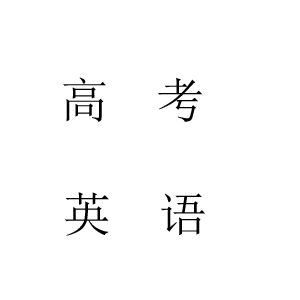
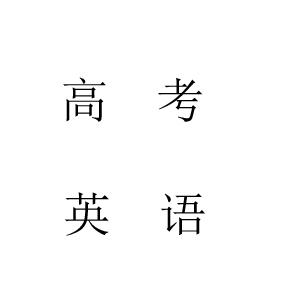
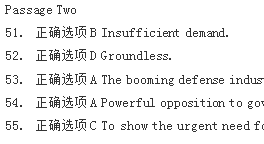

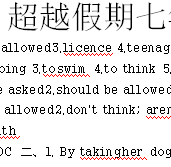


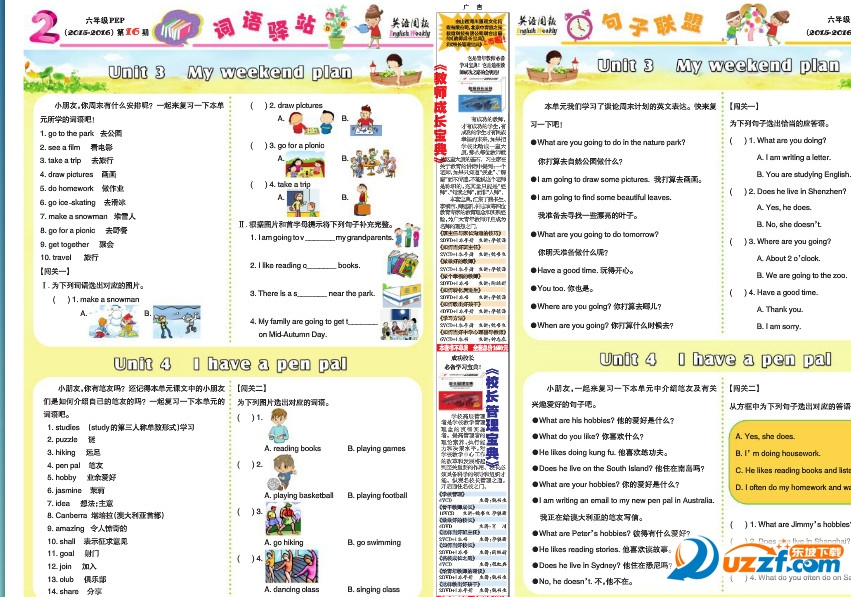

 七彩課堂教科版科學(xué)1-6年級(jí)上冊(cè)教學(xué)資源包電子版
七彩課堂教科版科學(xué)1-6年級(jí)上冊(cè)教學(xué)資源包電子版
 23秋七彩課堂英語(yǔ)人教版九年級(jí)上冊(cè)教學(xué)資源包【課件+教案】
23秋七彩課堂英語(yǔ)人教版九年級(jí)上冊(cè)教學(xué)資源包【課件+教案】
 七彩課堂人教版英語(yǔ)八年級(jí)上冊(cè)課件PPT【教案】
七彩課堂人教版英語(yǔ)八年級(jí)上冊(cè)課件PPT【教案】
 23秋初中英語(yǔ)人教版七年級(jí)上冊(cè)教學(xué)資源包【課件+教案】
23秋初中英語(yǔ)人教版七年級(jí)上冊(cè)教學(xué)資源包【課件+教案】
 23秋七彩課堂人教PEP版英語(yǔ)四年級(jí)上冊(cè)教學(xué)資源包最新版
23秋七彩課堂人教PEP版英語(yǔ)四年級(jí)上冊(cè)教學(xué)資源包最新版
 23秋初中數(shù)學(xué)人教版九年級(jí)上冊(cè)教學(xué)資源包[課件+教案]
23秋初中數(shù)學(xué)人教版九年級(jí)上冊(cè)教學(xué)資源包[課件+教案]
 23秋七彩課堂人教版數(shù)學(xué)八年級(jí)上冊(cè)教學(xué)資源包最新版
23秋七彩課堂人教版數(shù)學(xué)八年級(jí)上冊(cè)教學(xué)資源包最新版
 23秋七彩課堂人教版數(shù)學(xué)七年級(jí)上冊(cè)課件PPT電子版
23秋七彩課堂人教版數(shù)學(xué)七年級(jí)上冊(cè)課件PPT電子版
 23秋七彩課堂統(tǒng)編版語(yǔ)文九年級(jí)上冊(cè)課件PPT最新版
23秋七彩課堂統(tǒng)編版語(yǔ)文九年級(jí)上冊(cè)課件PPT最新版
 23秋七彩課堂統(tǒng)編版語(yǔ)文八年級(jí)上冊(cè)教學(xué)資源包【課件+教案】
23秋七彩課堂統(tǒng)編版語(yǔ)文八年級(jí)上冊(cè)教學(xué)資源包【課件+教案】
 2023年秋七彩課堂語(yǔ)文課件1-6年級(jí)上冊(cè)合集【課件+教案】
2023年秋七彩課堂語(yǔ)文課件1-6年級(jí)上冊(cè)合集【課件+教案】
 2023嘉善空中課堂客戶端1.7.73 官方版
2023嘉善空中課堂客戶端1.7.73 官方版
 智慧中小學(xué)電腦版1.10 官方版
智慧中小學(xué)電腦版1.10 官方版
 優(yōu)巡監(jiān)考系統(tǒng)電腦客戶端v1.1.1_t 官方版
優(yōu)巡監(jiān)考系統(tǒng)電腦客戶端v1.1.1_t 官方版
 日照教育云電腦版1.0.7 安卓版
日照教育云電腦版1.0.7 安卓版
 天一閱卷系統(tǒng)客戶端v3.5 官方PC版
天一閱卷系統(tǒng)客戶端v3.5 官方PC版
 人教教學(xué)易電腦客戶端1.5.0.13 官方版
人教教學(xué)易電腦客戶端1.5.0.13 官方版
 學(xué)思教師用書專用平臺(tái)電子試卷【支持打印】免費(fèi)版
學(xué)思教師用書專用平臺(tái)電子試卷【支持打印】免費(fèi)版
 國(guó)家中小學(xué)智慧教育平臺(tái)電子教材(中小學(xué)電子教材)可打印版
國(guó)家中小學(xué)智慧教育平臺(tái)電子教材(中小學(xué)電子教材)可打印版
 新教科版六年級(jí)科學(xué)下冊(cè)課件【課件+教學(xué)設(shè)計(jì)】
新教科版六年級(jí)科學(xué)下冊(cè)課件【課件+教學(xué)設(shè)計(jì)】
 七彩課堂人教版pep六年級(jí)下冊(cè)英語(yǔ)課件最新版
七彩課堂人教版pep六年級(jí)下冊(cè)英語(yǔ)課件最新版
 高途課堂pc客戶端下載8.9.1 簡(jiǎn)體中文官方版
高途課堂pc客戶端下載8.9.1 簡(jiǎn)體中文官方版
 豌豆思維PC客戶端2.17.0 電腦版
豌豆思維PC客戶端2.17.0 電腦版
 學(xué)而思網(wǎng)校電腦客戶端v9.71.2 官方免費(fèi)版
學(xué)而思網(wǎng)校電腦客戶端v9.71.2 官方免費(fèi)版
 掌門優(yōu)課學(xué)生客戶端1.1.12 學(xué)生版
掌門優(yōu)課學(xué)生客戶端1.1.12 學(xué)生版
 拓課云課堂客戶端4.1.9 官方最新版
拓課云課堂客戶端4.1.9 官方最新版
 鯨魚外教培優(yōu)客戶端(鯨魚學(xué)堂)2.2.5pc版
鯨魚外教培優(yōu)客戶端(鯨魚學(xué)堂)2.2.5pc版
 有道云教室教師端2.1.1 電腦版
有道云教室教師端2.1.1 電腦版
 好分?jǐn)?shù)輔導(dǎo)電腦版2.1.79.3 官方最新版
好分?jǐn)?shù)輔導(dǎo)電腦版2.1.79.3 官方最新版
 學(xué)霸君有課客戶端1.0.10.0 pc版
學(xué)霸君有課客戶端1.0.10.0 pc版
 猿輔導(dǎo)老師版客戶端5.60.0官方免費(fèi)版
猿輔導(dǎo)老師版客戶端5.60.0官方免費(fèi)版


 eztest考試系統(tǒng)1.2.11 官方版
eztest考試系統(tǒng)1.2.11 官方版 七彩課堂二年級(jí)上冊(cè)語(yǔ)文課件2023秋季更新部
七彩課堂二年級(jí)上冊(cè)語(yǔ)文課件2023秋季更新部 七彩課堂部編版一年級(jí)上冊(cè)語(yǔ)文課件+教案202
七彩課堂部編版一年級(jí)上冊(cè)語(yǔ)文課件+教案202 七彩課堂統(tǒng)編版四年級(jí)上冊(cè)語(yǔ)文ppt課件電子版
七彩課堂統(tǒng)編版四年級(jí)上冊(cè)語(yǔ)文ppt課件電子版 七彩課堂統(tǒng)編版六年級(jí)上冊(cè)語(yǔ)文ppt課件【課件
七彩課堂統(tǒng)編版六年級(jí)上冊(cè)語(yǔ)文ppt課件【課件 七彩課堂部編版五年級(jí)上冊(cè)語(yǔ)文教學(xué)課件PPT2
七彩課堂部編版五年級(jí)上冊(cè)語(yǔ)文教學(xué)課件PPT2 青島市促進(jìn)中小學(xué)生全面發(fā)展十個(gè)一項(xiàng)目管理
青島市促進(jìn)中小學(xué)生全面發(fā)展十個(gè)一項(xiàng)目管理 2023春七彩課堂四年級(jí)下冊(cè)語(yǔ)文課件PPT【課件
2023春七彩課堂四年級(jí)下冊(cè)語(yǔ)文課件PPT【課件 七彩課堂人教版一年級(jí)上數(shù)學(xué)課件+課練電子版
七彩課堂人教版一年級(jí)上數(shù)學(xué)課件+課練電子版 唐詩(shī)三百首全集mp3格式免費(fèi)版
唐詩(shī)三百首全集mp3格式免費(fèi)版